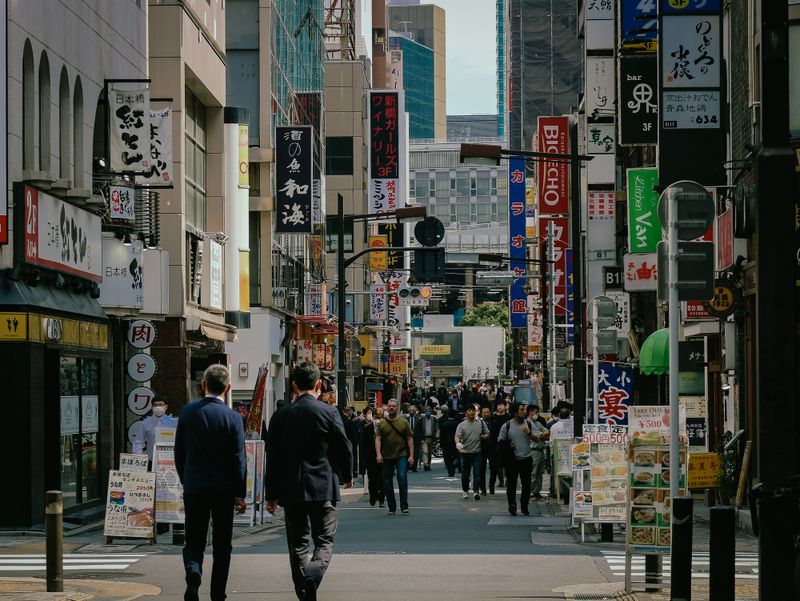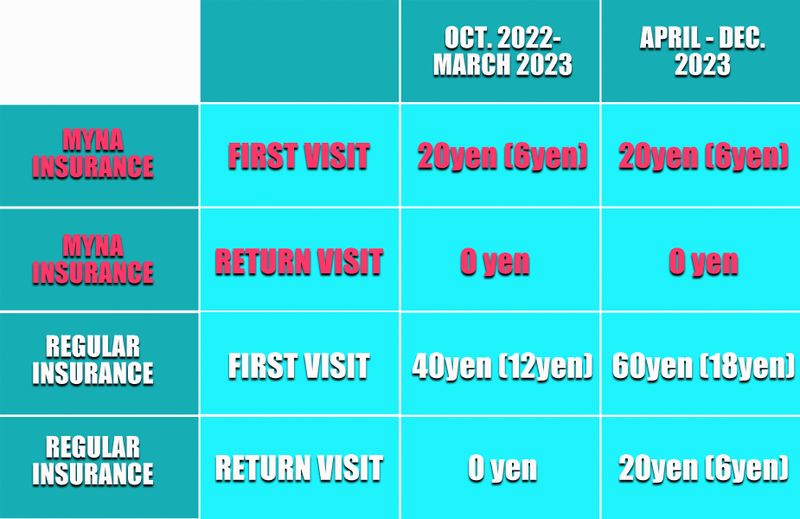Mar 31, 2023
Mynapoint deadline extended, what's next for Japan's My Number card?

[UPDATED: March 31. 2023] With the deadline for Japan’s My Number card applications in order to qualify for the 20,000-point mynapoint campaign having passed, what’s next for My Number card holders and the points campaign?
After two extensions to the original end-of-September 2022 deadline to get a My Number card in order to qualify for the second phase of the Japanese government’s mynapoint campaign, which brought us to the end of February 2023, it looks like that really is that for the future of the second phase mynapoint.
Will there be a third phase? All seems to be quiet on that particular front, although it is perhaps hard to rule out further campaigns and promotions as the authorities strive to have all residents of Japan in possession of the My Number social security and tax identification card.
The second phase of the mynapoint campaign has yet to reach the finish line though. My Number card holders (who submitted card applications before the deadline) currently have until the end of May 2023 to complete the necessary procedures to receive up to 20,000 yen in points to use for cashless shopping through the mynapoint campaign. And the deadline could be extended again.
On March 17, Digital Minister Taro Kono revealed that he is negotiating an extension to the deadline for applications to receive mynapoints after fears that the flood of applications to obtain cards at the end of February may result in delays in delivery and leave holders with insufficient time to complete points application procedures.
"We are discussing the necessary measures with the Ministry of Internal Affairs and Communications so that those who have applied for the (My Number) card can feel at ease,” Kono said, according to reports.
[UPDATE] The Ministry of Internal Affairs and Communications announced Friday (March 31) that it will extend the point application deadline from the end of May to the end of September.
After the dust of the mynapoint rush has settled, all eyes will likely be on the transition from regular health insurance cards to My Number cards being used in their place, a scheme that adopted the moniker “myna insurance.”
As things stand, the government plans to abolish the current health insurance cards by the fall of 2024.
Those people who do not wish to make the switch don’t have to. Instead, it looks like they will need to go through procedures to be issued with a kind of "certificate of eligibility" (資格確認書), which can used in place of the current health insurance cards and My Number cards.
The expiration date of the certificate looks set to be within one year after its issuance. No fee will be required. The certificate will be available for use in the case of losing a My Number card. All of this according to local news reports.
While the current insurance cards will be abolished in the fall of 2024, cards will remain valid for one year from the date the new system takes effect, again according to reports.
Staying with myna insurance, from April 2023 medical fees are set to increase for those patients who have yet to switch to the new system.
The increases only apply, however, to the fees charged for visiting and being taken for consultation or treatment at a medical facility, not the treatment itself. In addition, increased fees only apply at those facilities which have, or are in the process of setting up, the systems required in order to be able to accept the myna insurance cards.
The chart below shows the extent of the increase in fees.

Currently, the medical fee for a first visit to a hospital or clinic in Japan is set at 20 yen (six yen after 30 percent insurance coverage) with the “myna insurance” card. With a conventional health insurance card it’s a little higher at 40 yen (or 12 yen after the 30 percent coverage).
As a special measure, first-visit fees will increase from April to 60 yen (18 yen after 30 percent coverage) for regular card holders. Return visits will increase to 20 yen (6 yen after 30 percent coverage).
The increases are reported to be temporary, until the systems required to accommodate myna insurance cards are in place at medical institutions nationwide.
According to data from the health ministry, as of March 19, 98.7 percent of hospitals and 91.8 percent of clinics in Japan have already applied to receive card readers capable of taking myna insurance cards.
Looking a little further
It’s been known for some time that the government is eying up linking My Number cards with drivers licenses. There appear to be no significant updates on this but perhaps we expect things to move up through the gears as we approach 2024.
When the government in 2020 announced plans to integrate driver's licenses with the My Number card system, the target was 2026. This was quickly moved up to 2024. Comments from Digital Minister Kono Taro made during a press conference in October last year suggest that the program could begin even earlier although nothing has been announced as of the time of writing.
Integrating driver's licenses into My number cards could potentially make for a smoother. one-stop procedure when it comes to updating information on the license such as a change of address. On the other hand, the impact of losing a My number card that also serves as a driver’s license (not to mention a health insurance card) would be exacerbated greatly.
The idea has also been floated to do something with My Number cards and Residence Cards, or “gaijin cards.” That’s surely going to raise a few eyebrows and moans from the expat community should anything happen, but it looks like that might not start moving until 2025.
In November 2022 the government revealed that it was considering the possibility of linking My Number cards to the purchase of tickets for professional sporting events and concerts as a way to clamp down on the resale of tickets by third parties at high prices.
Kono instructed the Digital Agency to begin discussions with professional sports and other related organizations, and a trial got underway to determine whether My Number cards can be used in ticket sales, according to reports at that time.
Following with interest.
More My Number controversy?
As the authorities continue to beef up the clout and reach of the My Number system, residents of Japan can surely expect more controversy as the card finds new ways into the nooks and crannies of daily life.
It was only in January this year that we learned of the government’s idea to update to the My Number system that would see details of bank accounts used by residents to receive state benefits automatically linked to their personal identification numbers and registered as accounts to receive public funds under the system.
Under the proposed update, residents enrolled in state welfare schemes, with bank account numbers already held by the relevant administrative agencies, would be notified in advance of their accounts being linked to the My Number system.
Unless the holder was to respond to the notification with a statement of rejection to the proposal within a certain time period, they would be deemed to have given consent and their account automatically linked to the system.
Regional municipalities feeling the pressure from Tokyo?
The city of Bizen in Okayama Prefecture might be best known for its traditional pottery - Bizen-yaki.
More recently however, the city has been in the spotlight for its plan to stop paying for elementary and junior high school lunch fees, school supplies fees, and daycare fees for children's preschools and nursery schools, unless the child’s entire household, including children, has obtained a My Number card.
The city currently bears these expenses, regardless of households having a My Number card or not, as a means of childcare support for parents. In February this year the city mayor expressed his intention to implement the new policy from FY2023, according to reports.
In March The Okayama Bar Association issued a statement on its website saying that "the acquisition of a My Number card has nothing to do with the purpose of the measure to reduce the financial burden on parents" and pointed out that the acquisition of a card or not would bring about discrimination without between children, students, and their guardians.
The association also requested Bizen City to reconsider a series of measures, claiming that the freedom to refuse to have information collected on a My Number card should be respected, according to reports.
As of March 26, 95.9 million people had applied for a My Number card, accounting for just over 76 percent of the population of Japan, according to communications ministry data.
Related
MY NUMBER CARD Japan: What's the point beyond the mynapoints?



0 Comments